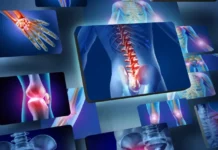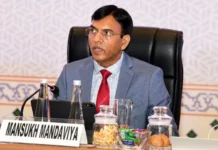As India prepares for the second wave of coronavirus infections, several hospitals in the country have enlisted the help of robots to lighten the load of frontline pandemic workers. Masterminded by Invento Robotics in Bangalore, the robots have been programmed to undertake tasks, such as facilitating video interactions, answering questions and disinfecting surfaces.
Thus far, the company has distributed a handful of Mitra robots, which, according to the mitrarobot website, can “integrate with a variety of third party applications in telemedicine and sensor data collection to provide health diagnosis anywhere.” Similar robots have been deployed in Maker village in Kerala to spray hand sanitizer. Further afield, robots have been used to help provide healthcare in remote areas of Canada, including Saskatchewan.
Mitra use facial-recognition technology to recognise particular patients and can be stationed around hospitals to help patients connect with loved ones and doctors through a video screen. “Mitra can be the nurse’s or doctor’s assistant, take readings and vitals, remind them of medications,” said the CEO of Invento Robotics, Balaji Viswanathan. “It may sound ironic but we are using robots to bring humanity to hospitals.”
One of the hospitals that is currently using Mitra on its premises is a hospital in Noida. One of the robots has been stationed outside the hospital’s entrance where it screens arrivals for the symptoms of COVID-19 while the other watches over the intensive care unit. “Inside our ICU [Mitra] helps patients connect with their families through video streams and gives the patient’s family a look inside,” said the hospital’s director Kapil Tyagi. “Patients get happy and positive whenever the robot visits them. They are often clicking selfies with Mitra.”
While Viswanathan initially supplied Mitra to banks, where they identified customers, issued tickets and collected feedback, he said that the hospital sectors started showing more interest in the robots since the breakout of the pandemic. “Two years ago, there was not much interest on the healthcare side,” said Viswanathan. “When coronavirus hit, hospitals finally understood what we were talking about.”
With over 8 million Convid-19 cases and 120,000 deaths, Indian hospitals have been overwhelmed with patients. After India entered lockdown in March, people were advised to build their immunity at home with multivitamins and Ayurveda treatments. Back in October, for example, the Minister of Health and Family Welfare, Harsh Vardhan, acknowledged the importance of Ayurveda in preventing the treating COVID-19.







